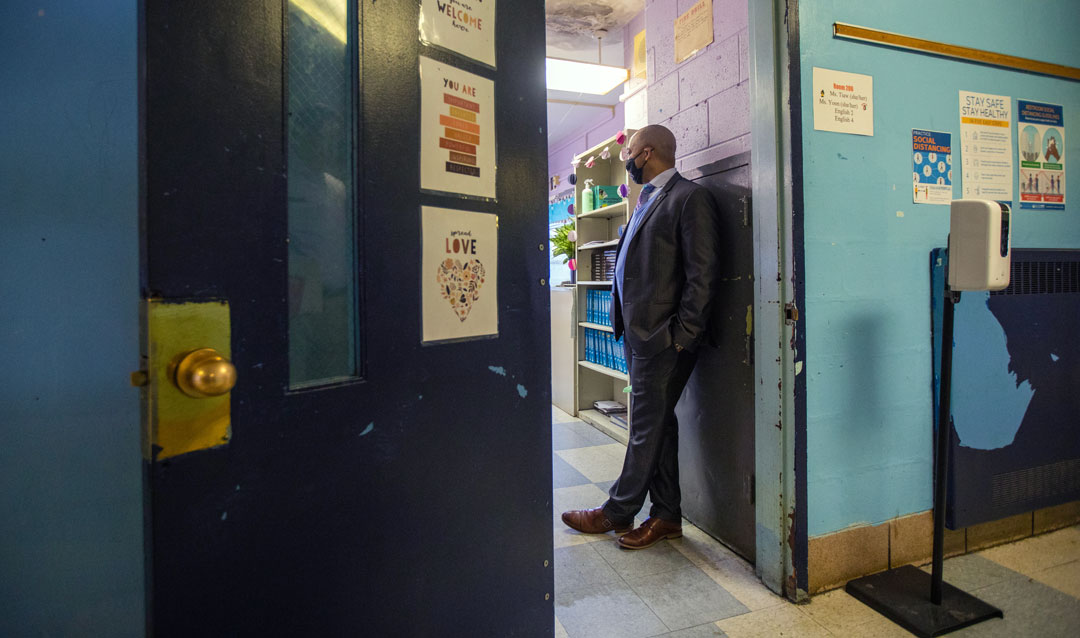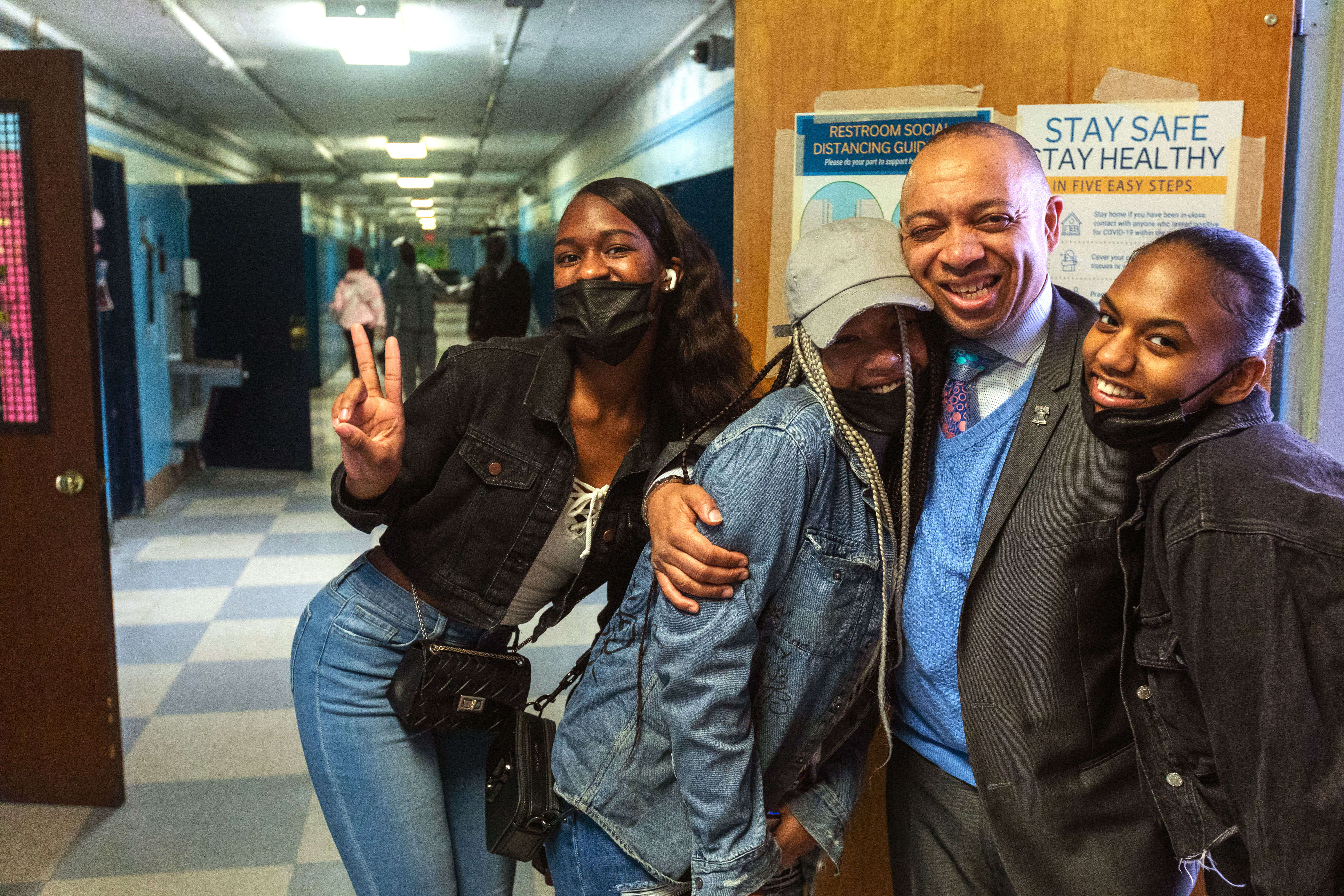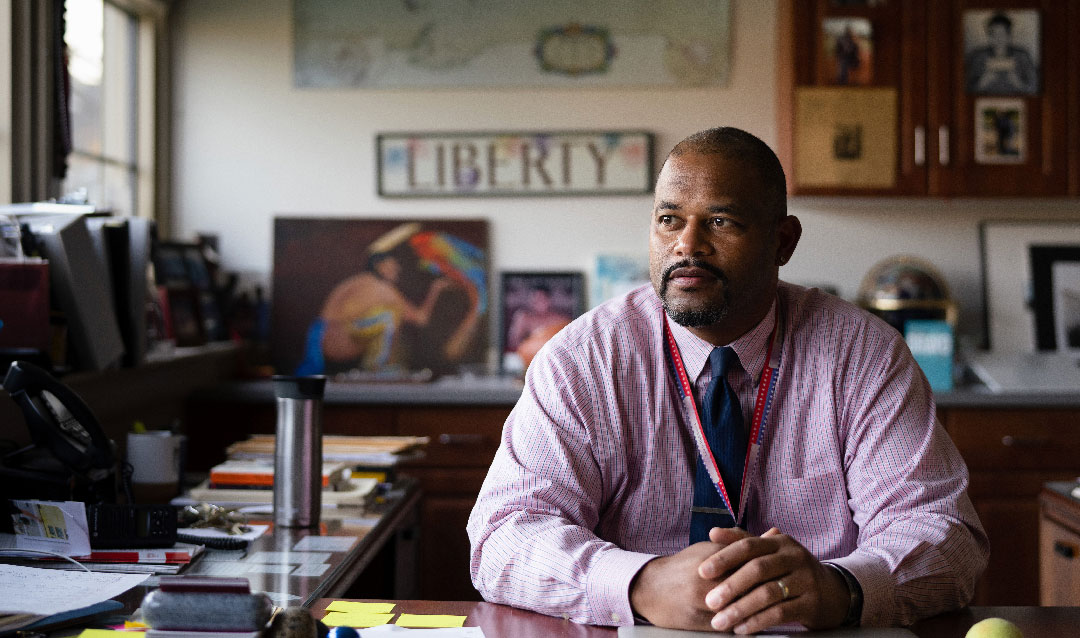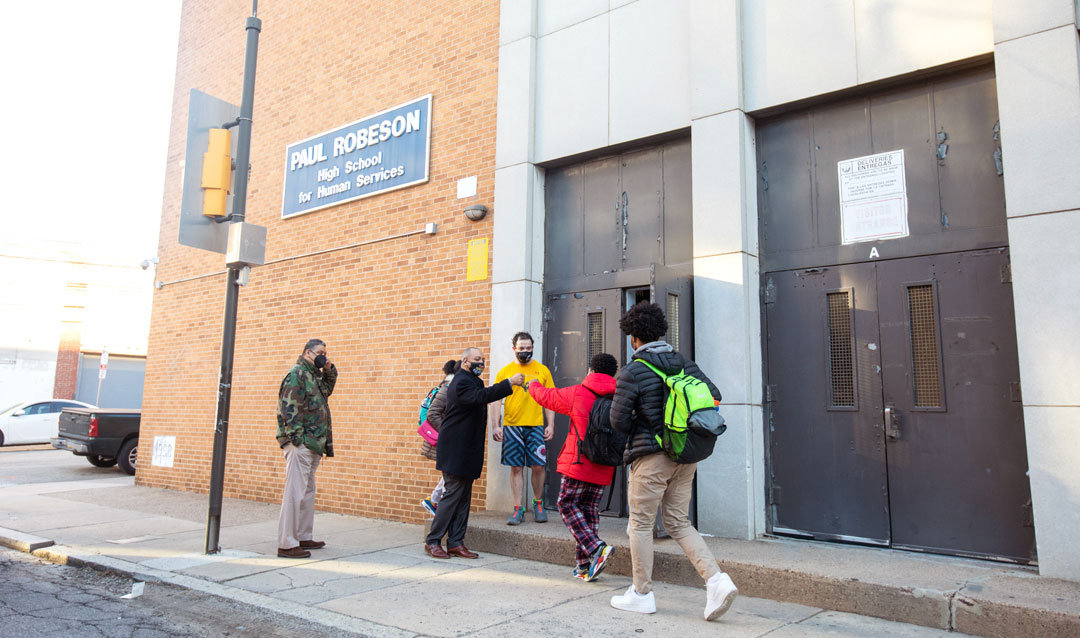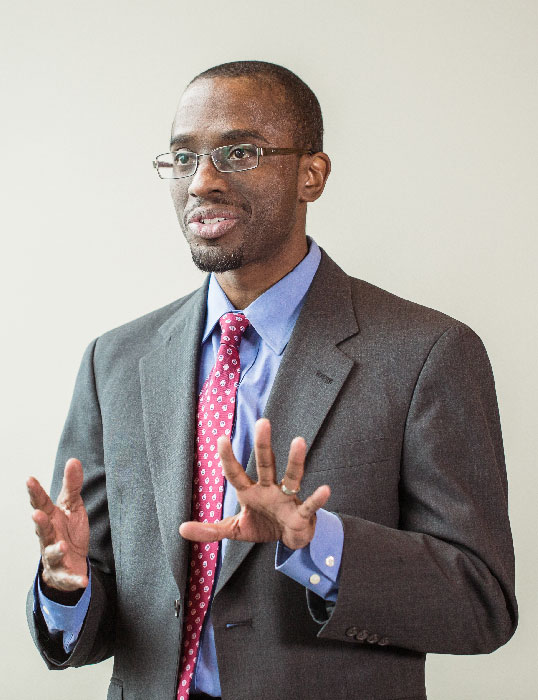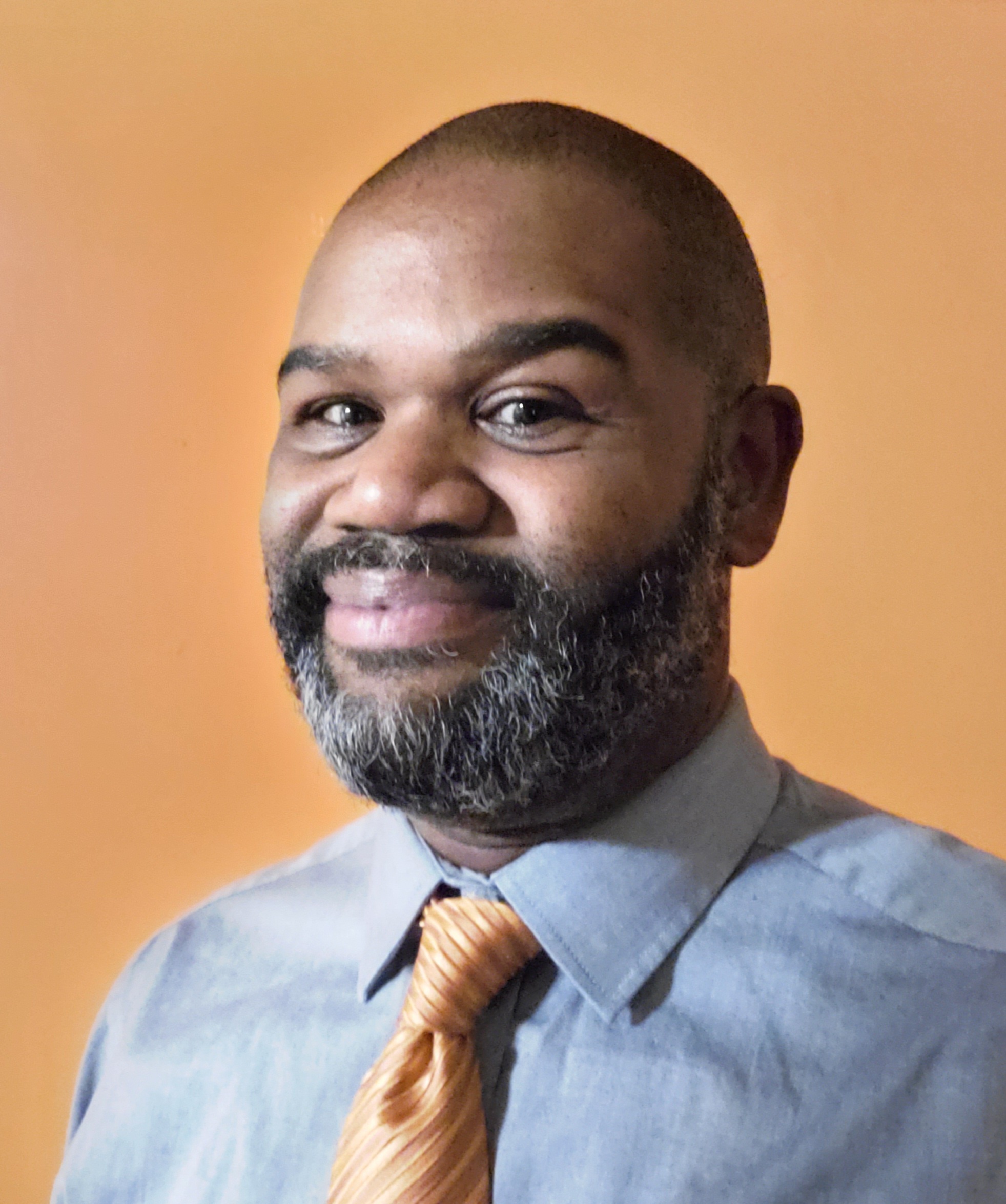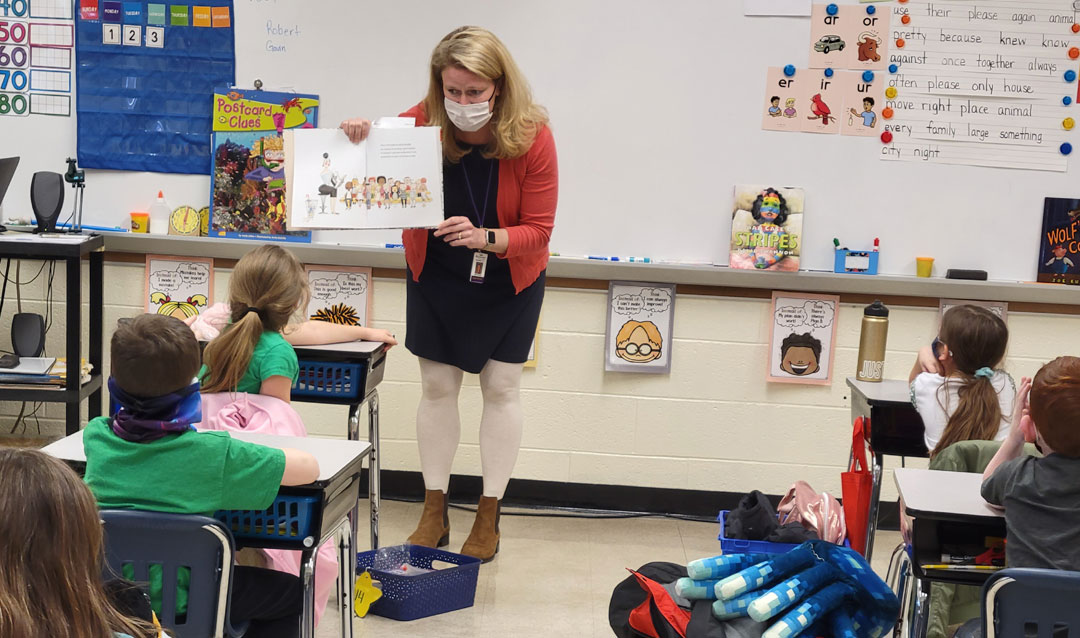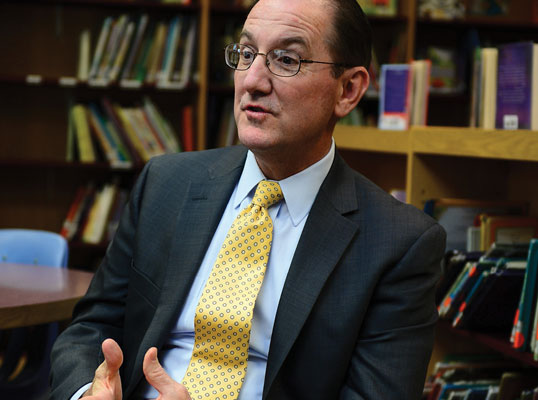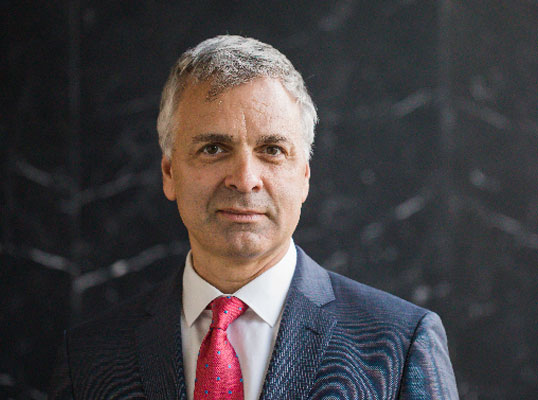Richard Gordon IV grew up in poverty in Camden, New Jersey. The male figures in his family were “sometimes on the wrong side of the law,” involved in drugs or other criminal activity, he says. His parents divorced when he was 8 years old, and he was shipped from home to home. In high school, he spent several hours each day traveling beyond his neighborhood to a safer, better school.
Today, Gordon ’07G leads Paul Robeson High School for Human Services in Philadelphia, where his work as principal earned him recognition as the 2021 National Principal of the Year by the National Association of Secondary School Principals. That followed his selection as 2020 Pennsylvania Principal of the Year.
Gordon is among a growing list of award-winning leaders to emerge from Lehigh’s Educational Leadership Program. And as a Black man, his role in a leadership position is important, educators say, especially in schools where the student population does not always reflect the makeup of teachers, staff and administrators.
“When you have more teachers of color, you do have a greater chance of some shared experiences, historical experiences, current experiences, so teachers can make meaningful connections,” says Floyd Beachum, professor of educational leadership at Lehigh and co-author of School Leadership in a Diverse Society: Helping Schools Prepare all Students for Success. “That's a huge benefit.”


